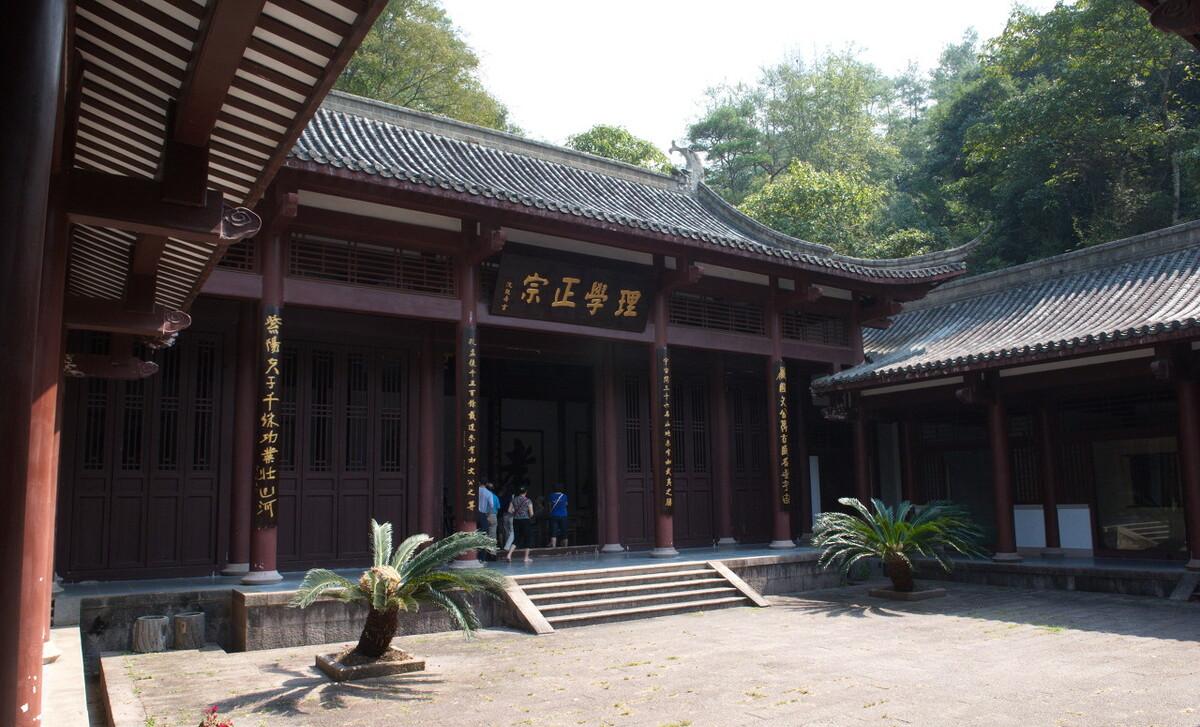Zhu Xi's criticism of Buddhist "emptiness"
Zhu Xi was not only a master of Song Dynasty science, but also a master of the Song Dynasty scholar-doctor's pai Buddhist thought. The core of Buddhist thought is "emptiness", and Zhu Xi, from the perspective of the Confucian ren gangchang, grasped the Buddhist idea and behavior of "birth" and severely criticized it.

First, the Buddhist "emptiness" is contentless and unrealistic
Zhu Xi pointed out that the highest essence of Buddhism is "emptiness", which is emptiness of everything, and the highest essence of Confucianism is "Heavenly Truth", which is the reality of everything. In contrast, the essence of Buddhism is an "empty" body without any specific content, while Confucianism is both physical and powerful, full and vast.
In Zhu Xi's view, the Confucian Heavenly Principle contains the contents of benevolence and love of things, people's livelihood Yi Lun, and Ge Wu Zhi Zhi, etc., Buddhism leaves the empty principle used by human beings and daily uses, so it is "emptiness and silence". Zhu Xi concluded in this way that "Shi Shi is virtual and my Confucianism is real", emphasizing that the footholds of the two schools of Confucianism and Buddhism are fundamentally different.
Second, the Buddhist response: Benevolence and righteousness are at best love, and do not represent heavenly reason
But Buddhism does not agree with Zhu Xi. As early as the Tang Dynasty, Zongmi believed that the Confucian morality of "benevolence and righteousness" was not necessarily true. The Tantra says that "righteousness" or "unrighteousness" is to look at one's state of mind when doing things: if one does it with an enlightened mind, it is a righteous thing; if it is done with a frenzied mind, it is an unrighteous thing. "Benevolence" only represents the Confucian side of the word, at most it is a secular "love", not the end, let alone the highest "heavenly truth" in the universe.
Zong Gao, a contemporary of Zhu Xi, said that benevolence, righteousness, etiquette, wisdom, and faith are certainly concrete manifestations of human nature, but they are not the nature of all things in themselves, and Confucianism only recognizes benevolence, righteousness, and wisdom as heavenly reason, seeing the sky and not seeing people, "for learning" and not "for the Tao", and the realm is not high.
Third, the "emptiness" of Buddhism is to eliminate defilements, and the "principle" of Confucianism is to maintain the principle of permanence
Zhu Xi had some knowledge of Buddhism. He said:
"Shi Shi saw that a truth was empty and unreal, so he had to be detached, to get rid of all the material tiredness, and to be a Buddha without leakage."
Buddhism sees emptiness in order to transcend the burdens of life and liberate oneself from becoming a Buddha. In this sense, its emptiness is "mind" emptiness and "things" are not empty, and it is based on the mind as the body and the use of things, not the Confucian council. That being the case, Zhu Xi's use of the actual Confucian code of ethics to criticize Buddhism's "emptiness and silence" can be said to be not discussed at the same level. Fu Weixun once analyzed this:
The ultimate existence affirmed by Neo-Confucians is reality rather than nothingness, but the "nothingness" that they understand and reject is nothing but "emptiness and nothingness", similar to Guo Xiangyun's "nothingness", that is, the meaning of complete non-existence, but has nothing to do with Mahayana "emptiness" or Lao Zhuang's "nothingness". According to my years of investigation, the metaphysics of Confucianism is not as thorough as that of Taoism, and still less as clear in the semantic and rational path of Mahayana Buddhism.
The development of Chinese Buddhism to the time of Zhu Xi, has long agreed with the Confucian code of ethics, this is already common sense, Zhu Xi must be no stranger to this, but he still uses "emptiness and nothing" to understand the "emptiness" of Buddhism, for Zhu Xi, who has been in and out of the Study of the Buddha for many years, it should not be a misunderstanding, but a deliberate misinterpretation. The fundamental reason for this is that Zhu Xi negates Buddhism's transcendent mind with the principle of humanity.